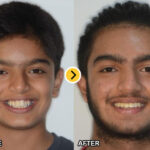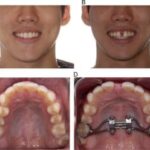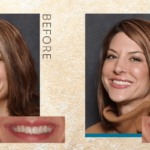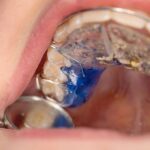In the field of dentistry, dental auxiliaries play a crucial role in assisting dentists and ensuring the smooth operation of dental practices. While their primary responsibility is to provide support to dentists, dental auxiliaries can also perform expanded functions under the supervision of a licensed dentist. These expanded functions allow dental auxiliaries to take on additional responsibilities and provide a higher level of care to patients.
One example of an expanded function for dental auxiliaries is the administration of local anesthesia. With proper training and certification, dental auxiliaries can assist dentists in delivering local anesthesia to patients. This allows for a more efficient and streamlined process, as dental auxiliaries can help alleviate the workload of dentists by administering anesthesia before procedures.
Another expanded function for dental auxiliaries is the placement and removal of dental restorations. Dental auxiliaries can assist dentists in preparing and placing various types of restorations, such as fillings, crowns, and bridges. They can also remove temporary restorations and perform necessary adjustments under the supervision of a licensed dentist.
Furthermore, dental auxiliaries can also perform dental radiographic procedures. With appropriate training and certification, dental auxiliaries can take dental X-rays and assist in capturing diagnostic images. This allows dentists to focus on diagnosing and treating patients, while dental auxiliaries handle the technical aspect of obtaining high-quality radiographs.
Overall, the expanded functions for dental auxiliaries enhance the efficiency and effectiveness of dental practices. By taking on additional responsibilities, dental auxiliaries can provide a higher level of care to patients and contribute to the overall success of dental teams.
Expanded Functions for Dental Auxiliaries

A dental hygienist is an important member of the dental team who plays a crucial role in providing oral health care to patients. They work closely with dentists to prevent and treat oral diseases, promote good oral hygiene practices, and educate patients on proper dental care.
One of the expanded functions for dental hygienists is administering local anesthesia. This involves the use of anesthetic agents to numb specific areas of the mouth during dental procedures. By being able to administer local anesthesia, dental hygienists can assist in providing pain relief and ensuring patient comfort during procedures.
Another expanded function for dental hygienists is the application of dental sealants. Dental sealants are thin, protective coatings that are applied to the chewing surfaces of the back teeth to prevent cavities. Dental hygienists are trained to properly clean and prepare the teeth, apply the sealant material, and ensure its proper placement and adhesion.
Additionally, dental hygienists may perform certain restorative procedures such as placing temporary fillings or crowns. This allows them to assist in the restoration of damaged teeth and provide immediate relief to patients while they await permanent treatment by a dentist.
Dental hygienists also play a role in taking dental impressions and making dental models. These models are used by dentists to plan and fabricate dental restorations such as crowns, bridges, and dentures. By being able to perform this expanded function, dental hygienists can contribute to the overall efficiency of the dental practice.
Overall, the expanded functions for dental hygienists allow them to provide comprehensive care to patients and enhance the overall efficiency of the dental team. With their specialized training and skills, dental hygienists play a vital role in promoting and maintaining good oral health.
Dental Hygienist
A dental hygienist is a licensed dental professional who specializes in preventive oral health care. They work closely with dentists to provide comprehensive dental care to patients. Dental hygienists perform a variety of tasks, including:
- Performing dental cleanings and removing plaque and tartar from teeth
- Examining patients’ teeth and gums for signs of disease or abnormalities
- Taking and developing dental x-rays
- Applying fluoride treatments and sealants to protect teeth
- Educating patients on proper oral hygiene techniques and providing oral health education
- Administering local anesthesia and nitrous oxide to patients
- Assisting dentists during procedures, such as fillings and extractions
In addition to these tasks, dental hygienists may also have expanded functions depending on their state’s regulations. These expanded functions may include:
- Administering local anesthesia
- Administering nitrous oxide
- Placing dental restorations, such as fillings
- Taking impressions for dental prosthetics
- Performing teeth whitening procedures
- Performing periodontal therapy, such as root planing and scaling
To become a dental hygienist, individuals must complete an accredited dental hygiene program and pass a national board examination. They must also obtain a state license to practice. Dental hygienists play a vital role in promoting oral health and preventing dental diseases. They work closely with dentists to provide comprehensive dental care and educate patients on proper oral hygiene practices.
Dental Assistant

A dental assistant is an important member of the dental team, providing support to both the dentist and the patient. They perform various tasks to ensure the smooth operation of the dental office and to assist in the delivery of quality dental care.
Some of the expanded functions that dental assistants may perform include:
- Assisting the dentist during procedures, such as handing instruments and materials
- Taking and developing dental x-rays
- Preparing and sterilizing dental instruments and equipment
- Providing patient education on oral hygiene and post-operative care
- Performing basic laboratory procedures, such as taking impressions and pouring models
- Administering topical anesthesia
- Performing coronal polishing
- Assisting with dental emergencies
- Managing patient records and scheduling appointments
Dental assistants work closely with the dentist to ensure that each patient receives the highest level of care. They play a crucial role in creating a comfortable and welcoming environment for patients, helping to alleviate any fears or anxieties they may have about dental procedures.
In addition to their technical skills, dental assistants must also have excellent communication and interpersonal skills. They must be able to effectively communicate with patients, explaining procedures and providing reassurance. They must also be able to work well as part of a team, collaborating with other dental professionals to provide comprehensive care.
Overall, dental assistants are essential members of the dental team, providing valuable support and contributing to the overall success of the dental practice.
Dental Laboratory Technician
A dental laboratory technician is a highly skilled professional who works behind the scenes to create custom-made dental prosthetics and appliances. They play a crucial role in helping dentists provide their patients with the best possible dental care.
As a dental laboratory technician, you will work closely with dentists and other dental professionals to create dental prosthetics such as crowns, bridges, dentures, and orthodontic appliances. You will use a variety of materials, including ceramics, metals, and plastics, to fabricate these prosthetics according to the specifications provided by the dentist.
Responsibilities of a Dental Laboratory Technician

Some of the main responsibilities of a dental laboratory technician include:
- Reading and interpreting dental prescriptions and specifications provided by dentists
- Taking accurate measurements and impressions of patients’ teeth and oral structures
- Using specialized equipment and tools to fabricate dental prosthetics
- Working with different materials to create prosthetics that are both functional and aesthetically pleasing
- Performing quality control checks to ensure that the prosthetics meet the required standards
- Collaborating with dentists and dental professionals to ensure that the prosthetics fit properly and meet the patient’s needs
- Maintaining a clean and organized work area
Skills and Qualifications
To become a dental laboratory technician, you will need to have the following skills and qualifications:
- Strong attention to detail
- Good hand-eye coordination
- Excellent manual dexterity
- Knowledge of dental anatomy and terminology
- Ability to read and interpret dental prescriptions and specifications
- Proficiency in using dental laboratory equipment and tools
- Ability to work independently and as part of a team
- Good communication skills

Dr. Fidel Cann: Esteemed orthodontist with a lifelong dedication to enhancing smiles and oral health. Pioneering expertise, compassionate care.






